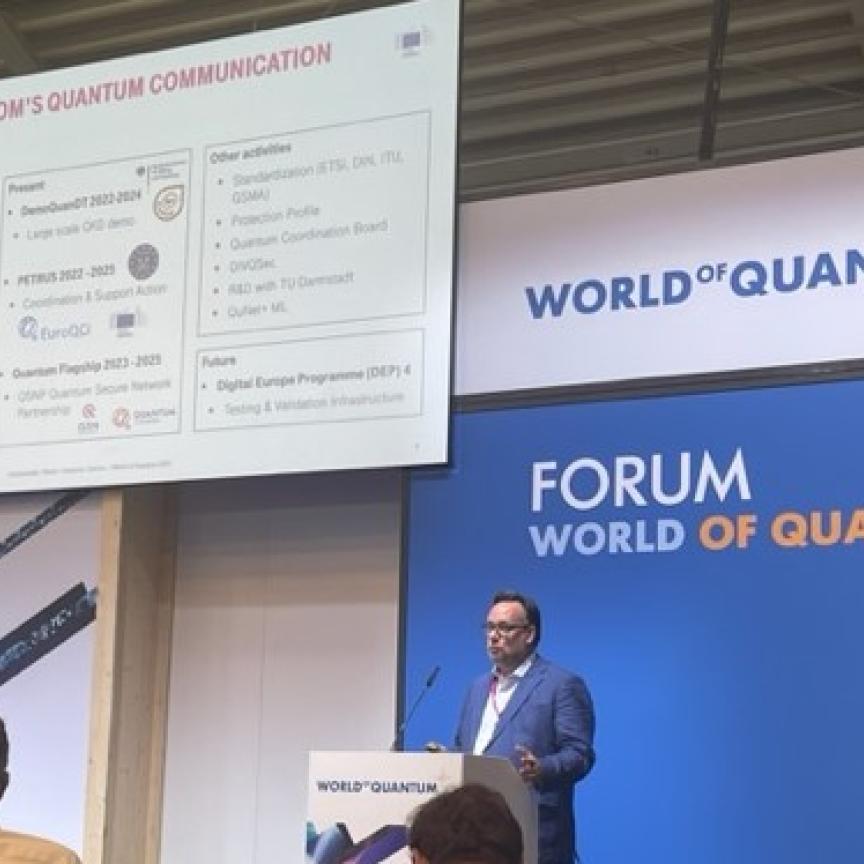Cardiff University has signed a deal with semiconductor wafer supplier IQE to establish a centre for compound semiconductor excellence in Wales.
The for-profit venture – the first of its kind in the UK – will seek to develop an expertise ‘cluster’ in the development and commercialisation of compound semiconductor technologies.
The Compound Semiconductor Research Foundation, as it is called, will drive the development and testing of semiconductor technology that lies behind global 'megatrends', powering change across sectors including healthcare, biotechnology and communication.
The aim is to help create commercial opportunities from the electronics and optoelectronics research at Cardiff University, which recently established a dedicated compound semiconductor research laboratory, headed by Professor Diana Huffaker from the University of California, Los Angeles (UCLA).
Professor Huffaker is best known for her pioneering work on compound semiconductors and the development of 'quantum dot' materials, used in optoelectronics and laser physics. Graduate students from Professor Huffaker's California lab recently formed a start-up to commercialise the lab's research into high-sensitivity electronic receivers.
"My research vision is to bring the promise of nanoscale physics to collect and transmit information using light with exquisite speed and sensitivity,” she said. “ I shall build an extensive user facility for materials and nanostructure synthesis not currently available in UK. To meet the needs of industry and academic collaborators, this laboratory will feature nimble flexibility to try new ideas, new material systems and growth methodology."
Cardiff’s new Foundation is also the beneficiary of £17.3 million from the UK Research Partnership Investment Fund and £12 million pledged by the Welsh Government.
Both partners see very significant benefits in the deal. Cardiff University will now have “a very clear and effective route to commercialise the R&D to be carried out at its Institute for Compound Semiconductors (ICS)”, and hopes to find it easier to attract significant corporate and other R&D funding. IQE expects to take the technologies developed at Cardiff University and the joint venture directly into large-scale mass production.
Cardiff University vice-chancellor, Professor Colin Riordan, said: “Coupling IQE's infrastructure with Cardiff's existing strengths in expanding areas of semiconductor devices and materials will create cutting-edge opportunities that will put us ahead of our competitors.”
IQE is a specialist in epitaxy, a process for making compound semiconductor wafers by precise deposition of different atomic layers of semiconductor elements. The company set up its first MOCVD-based wafer manufacturing operation in Cardiff in 1988.
IQE is also an industry partner in the recently announced US photonics manufacturing institute (see New York bid wins US photonics manufacturing competition).
“Our goal is to build this cluster into one of global significance and scale, leading to widespread economic benefits for the region, and providing a broad range of compound semiconductor technologies to support the rapid growth of the Key Enabling Technologies agendas, in Europe and throughout the rest of the World,” said Drew Nelson, chief executive of IQE.
To establish the joint venture, IQE will contribute equipment with a market value of £12 million, which will be matched by a £12 million cash contribution from Cardiff University. IQE will also license certain intellectual property to the venture.
The joint venture is effective from 1 August 2015.

